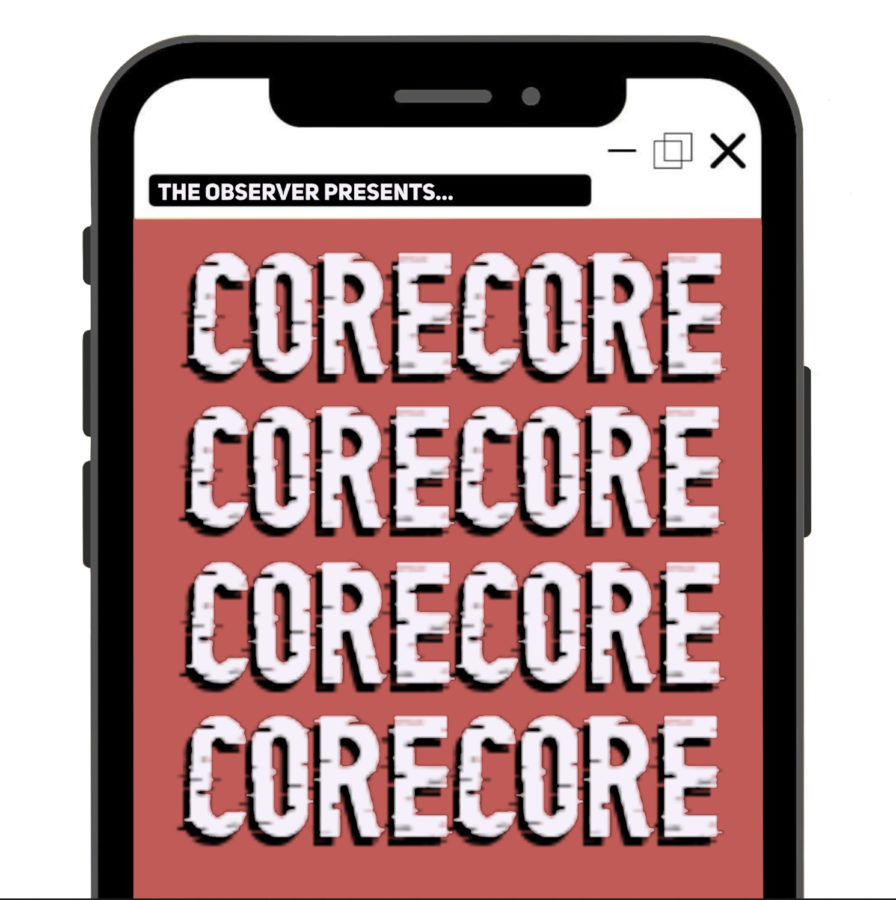The absurdist philosophy behind #corecore
January 27, 2023
If you were one of the many people who returned to using TikTok for hours a day over winter break, you may have noticed a niche trend gaining traction on the app: corecore. Corecore videos often consist of a rapid succession of clips backed by sad music, meant to highlight some depressing emotion or realization about life. According to Urban Dictionary, corecore is “[k]ind of a deconstructed art. Basically invoking emotion out of a series of (visual) clips that you develop your own meaning to. Corecore content is introspective.”
While there are a variety of corecore videos based around different themes, the general trend I have noticed is the goal of corecore creators to expose the absurdity of consumption that the social media generation is facing today. Our generation is constantly subjected to waves of information at an alarming rate. Scrolling through TikTok, you could interact with hundreds of videos in a single day, all from different people and about different things. This level of consumption is not at all normal; we are constantly overstimulated.
As an example, here is a list of the first seven videos that showed up on my “For You” page when I opened the app today: Beabadoobee lip-syncing to her own song, a parody video of a therapist’s “day in the life,” a bad review of a bar in California, a Starry lemon-lime soda advertisement, a makeup review, a Social Bees UK marketing tip and a meme-dump slideshow.
These videos are not related to each other at all, yet they still appeared on my page. And had I not just been scrolling to collect data for this article, I probably would’ve watched most of them. These clips have no real meaning, only existing for mere seconds of entertainment, and forgotten in a few minutes when I inevitably scroll to the next videos and repeat the cycle.
While corecore itself is a bombardment of clips and short videos, it is also a purposeful exaggeration of the speed and volume at which we normally view online media. It is meant to point out the obvious, yet unregulated, addiction of our generation to consumption. TikTok, Instagram and Twitter are supposedly escapes from the boredom of everyday life. The problem, though, is that everyday life is not boring. Our dopamine baselines have risen in recent years because of the constant interaction with short-form videos and posts, and now it’s becoming harder and harder to reach this threshold. Any experience outside of what we receive on social media seems boring, even when that is simply not the case.
This pervasive issue is what corecore aims to uncover. However, as corecore is still a TikTok trend, it is subject to the same destruction as other once niche and meaningful trends. While the niche once meaningfully impacted me, every new video I see under the hashtag is a washed-out, lazy version of the original trend that fails to have the same profound effects. Corecore used to be an anti-trend. Corecore, at its core, was chaos pointing out chaos with an underlying philosophical meaning to make viewers stop and consider the implications of being alive in the modern world. Now, creators and editors are hopping on the bandwagon for views, giving in to the exact issue corecore is trying to deconstruct.
The rise and fall of this trend is a bleak reminder that any attempts to break the cycle of scrolling are futile, and we will all eventually return to the harmful patterns of overstimulation and oversaturation. Perhaps my attempts to explain a trend meant to defy explanation is a personal failure to understand corecore. The trend’s defiance of categorization is potentially what makes us realize how absurd our patterns of consumption are. These videos are not meant to have any intrinsic meaning; viewers are expected to find their own meaning. However, life in the social media era has made us believe that we are supposed to be searching for a common way to relate to other people. After all, isn’t that why we post and interact on social media—to find relatable content that can fill the void of uncertainty that is existence?
It is quite impossible to relate to every single video that shows up on your “For You” page. We can’t be makeup gurus, music theory nerds and corporate millennials all at once. Therefore, corecore gives us something to relate to: the inability to relate at all.


